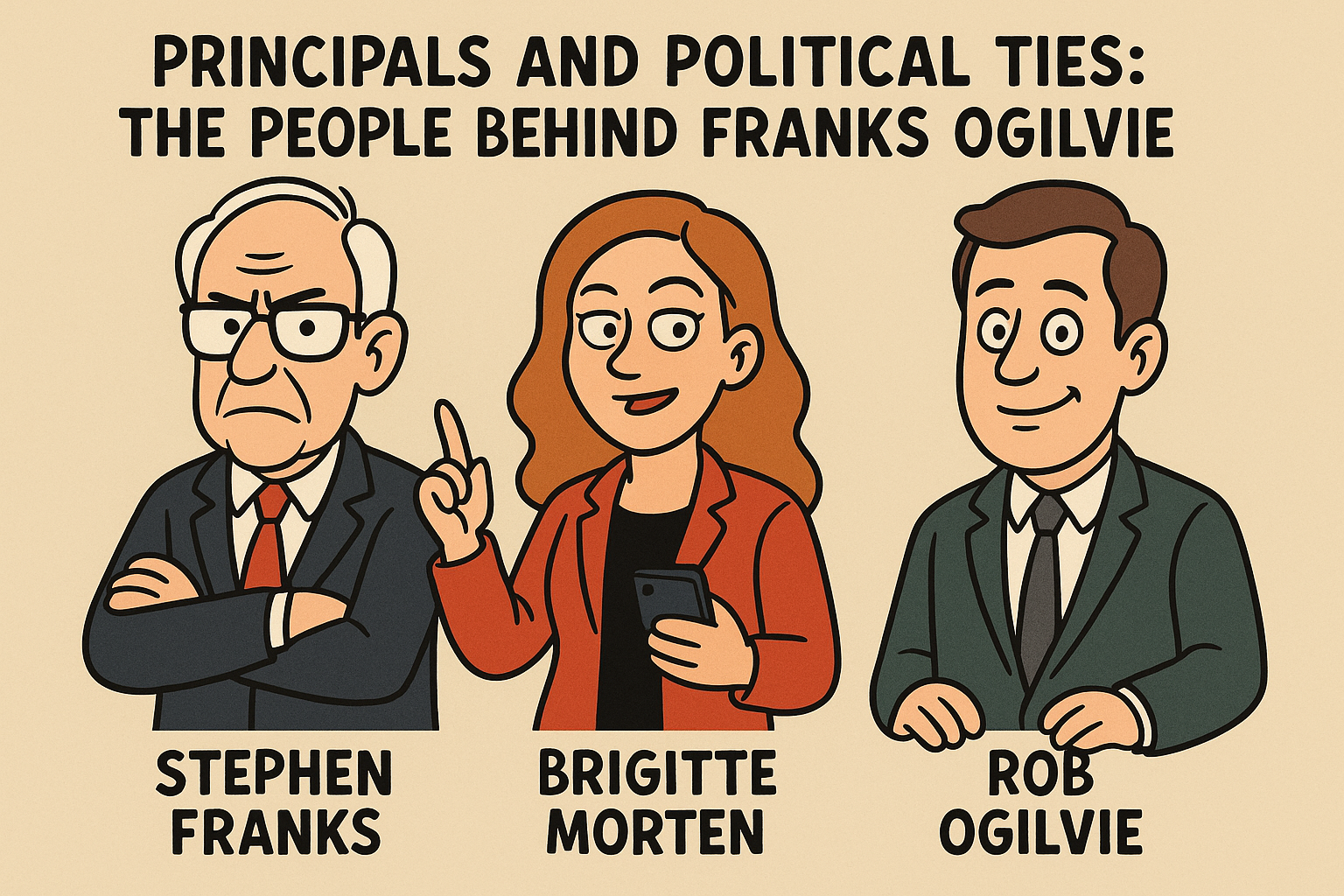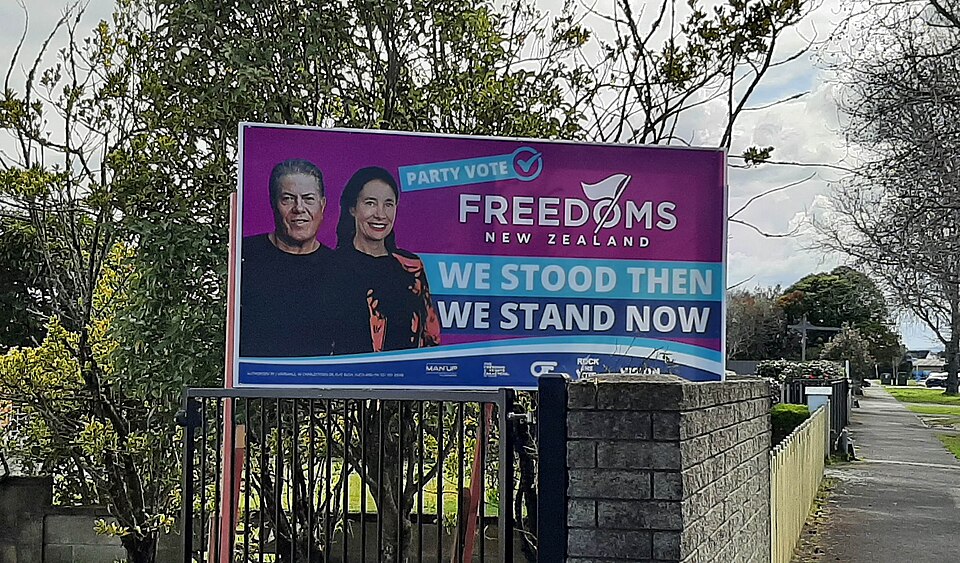Brigitte Morten – Political Insider Turned Hired Gun

Principals and Political Ties: The People Behind Franks Ogilvie
The character and conduct of Franks Ogilvie are very much shaped by its three directors. Stephen Franks, Brigitte Morten, and Rob Ogilvie each bring a distinct background straddling law and politics, and each plays a role in the firm’s advocacy. Understanding who they are is key to understanding why this firm behaves more like a political actor than a traditional law practice.
Brigitte Morten – Political Insider Turned Hired Gun
If Stephen Franks provides the ideological drive, Brigitte Morten supplies the political savvy and campaign skills. At 38 years old (considerably younger than Franks, who is in his 70s), Morten joined Franks Ogilvie in 2018 as a consultant and became a director/shareholder in 2021. She arrived with a decade of experience in politics across two countries. Morten’s CV reads like that of a consummate backroom operator. She earned a law degree at Victoria University of Wellington and a Master of Laws in Australia, but rather than practice in a firm, she dived into the political arena. In Canberra, she worked inside the Australian political system, serving as a senior advisor in state politics and even as Chief of Staff to an Australian Senator. She also spent three years as a political/media advisor at the Israeli Embassy in Australia, dealing with high-profile events (experience that hints at her ability to handle sensitive, controversial issues). Returning to New Zealand, Morten became a Senior Ministerial Advisor to the Minister of Education in the last National Government (2014–2017). In that role she was at the heart of policy-making and partisan strategy, working for a National Party minister (Hekia Parata and later Nikki Kaye). She is also a long-time National Party member – even in opposition years, she has remained active, recently volunteering for National’s deputy leader Nicola Willis.
Brigitte Morten thus bridges the gap between legal advice and political lobbying. At Franks Ogilvie, she has made it her specialty to help clients “engage with and influence government decisions,” as her own LinkedIn puts it. The firm openly advertises her skills: Morten “has worked extensively with clients in the private sector to help them establish and maintain relationships with government, lobby on important issues, and drive campaigns to raise public interest”. She “particularly enjoys working with grassroots and member-based organisations,” and knows “how to coordinate public interest campaigns across multiple channels,” according to her profile. Indeed, Morten has been instrumental in several of Franks Ogilvie’s campaigns. During the COLFO gun law challenge, it was Brigitte Morten who coordinated the multi-disciplinary strategy, effectively acting as campaign manager for the firearms lobby. Colleagues note that she can seamlessly shift from writing a legal submission, to coaching a community group on media talking points, to quietly phoning an MP in caucus to argue a case – a versatile skill set rare in the legal field. Morten’s involvement in the Three Waters fight was also significant: although Stephen Franks was the frontman, insiders say Morten handled much of the behind-the-scenes organizing of plaintiff groups and dissemination of research intended to bolster the court case in the public eye.
Outside the firm, Brigitte Morten is a media commentator and columnist. She regularly appears on RNZ, TVNZ, and Newshub panels to provide political analysis, usually introduced with her affiliation to Franks Ogilvie and her National Party credentials. She writes a weekly column for the National Business Review as well, often espousing center-right viewpoints. This public profile adds another channel through which the firm’s perspectives enter the mainstream discourse. For example, Morten has penned articles critical of government regulation and “cancel culture,” echoing themes in the firm’s cases. With her youthful energy and network of contacts (from Young Nats to legislative staffers), Morten has helped modernize Franks Ogilvie’s approach – embracing social media and contemporary campaign tactics alongside traditional legal work.
In sum, Brigitte Morten is the firm’s political operative. Whereas Franks provides big-picture legal arguments, Morten crafts the messaging and knows where to apply pressure in the political system. Her presence signals that Franks Ogilvie is not just a law firm filing paperwork, but a lobbying outfit in all but name. Tellingly, New Zealand’s lobbying disclosure rules (such as they are – NZ has no mandatory register) do not cover law firms, meaning Franks Ogilvie can operate in the lobbying world with little transparency. Morten’s dual role as lawyer-lobbyist exploits that gap. She embodies the firm’s fusion of law and politics: a lawyer who is equally at home drafting legislation amendments or running an election campaign war-room.

Comments